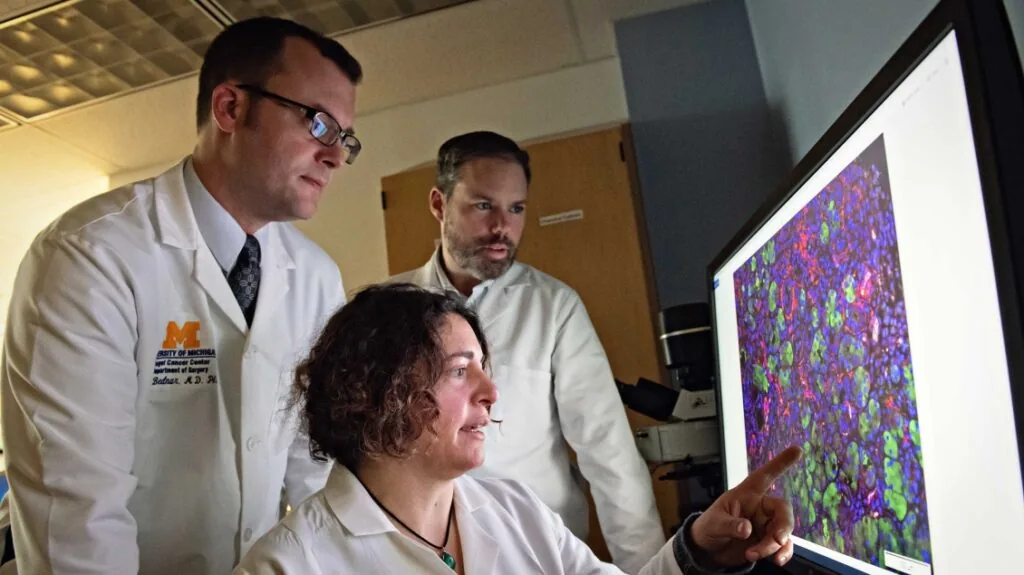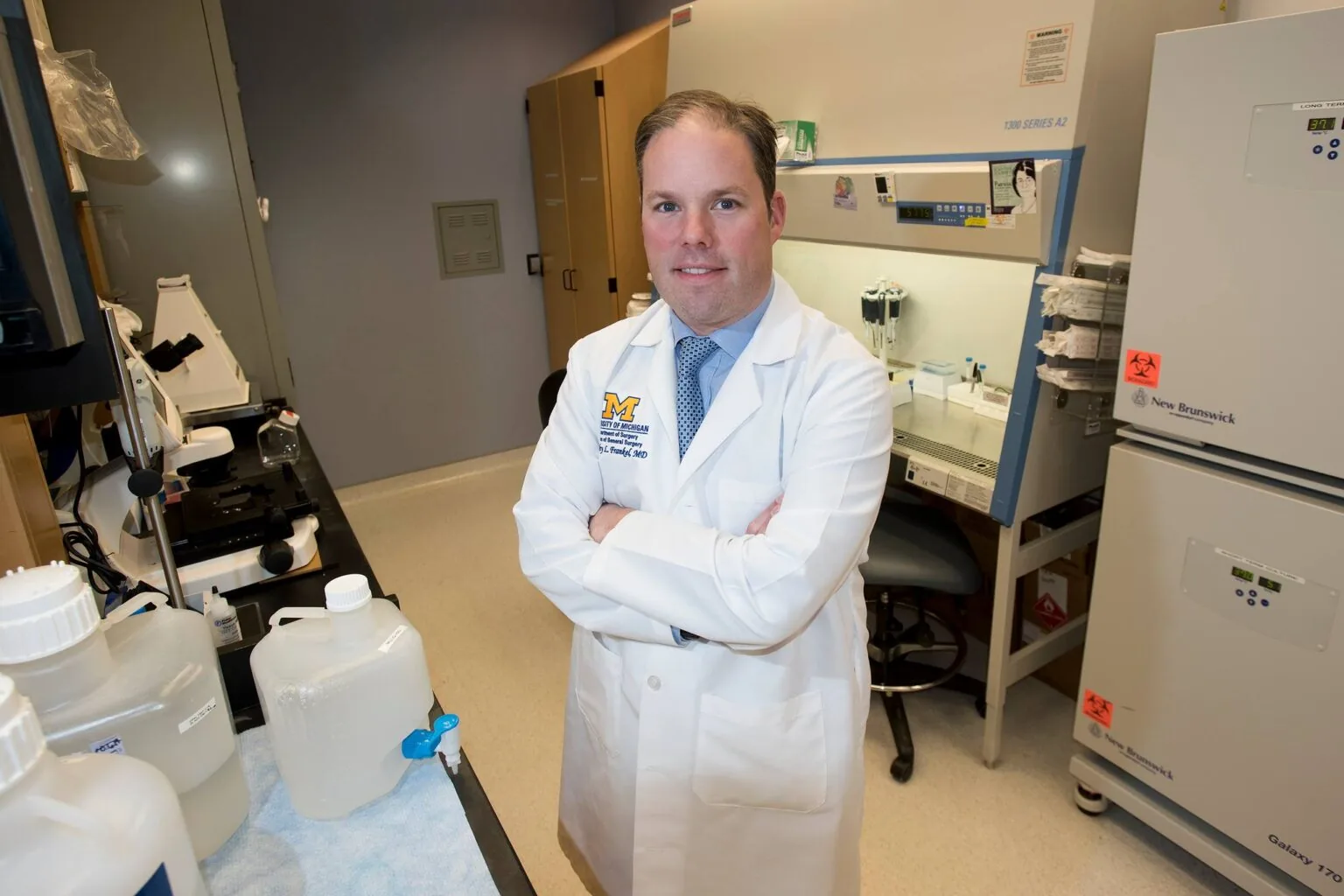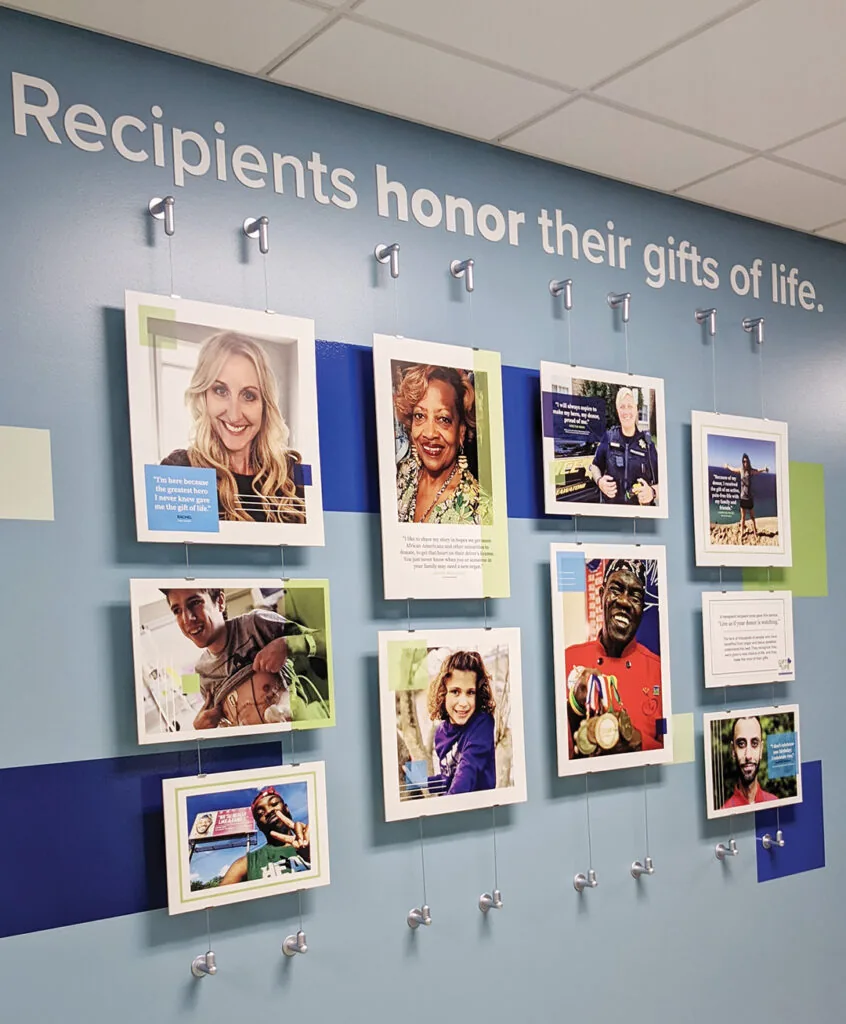Groundbreaking Michigan Medicine partnership ‘has the potential to help thousands’
Dr. Tim Frankel is in the midst of groundbreaking research into pancreatic cancer, and the key to his findings is the generosity of organ donors from Gift of Life Michigan, just a few miles across town.
Since 2021, this state’s organ donors have provided more than 100 pancreases to Michigan Medicine in Ann Arbor for pivotal research into one of the world’s deadliest cancers. Organs that can’t otherwise be placed for transplantation go to Dr. Frankel and his team, allowing them — for the first time anywhere — to compare normal pancreas samples with cancerous ones.

Until this partnership with Gift of Life, researchers had only a partial understanding of what normal pancreatic tissue even looked like microscopically. And there was no reliable way to study the normal pancreas, Dr. Frankel said.
“That’s always been the holy grail of pancreas research,” he said. “Much to the team’s surprise, microscopic precancerous lesions were found in the seemingly normal pancreases. That has allowed us to study the earliest spot in time when things start to go awry.
“What we’re doing now — with the help of organ donors — has the potential to help thousands.”
Dr. Frankel’s ultimate hopes:
- Identify markers to help patients know if they’re at risk of developing pancreatic cancer.
- Understand what flips a cellular switch allowing precancerous cells to become cancer.
- Find a cure and offer hope to the 66,000 patients who will be diagnosed in the United States this year.
Gift of Life’s primary goal is always to transplant organs, and its dedicated teams work hard to find matches for patients on the waiting list, said Dorrie Dils, the organization’s president and CEO.
“But when it isn’t possible, we turn to research,” she said. “Dr. Frankel’s work not only makes great strides in finding a cure for pancreatic cancer, but it also allows generous pancreas donors to do good for others, even when transplantation isn’t an option.
“This is one more way generous organ donors and their families are saving lives.”
Dr. Frankel said each organ is cut into 15 sections to create samples for study.
“We have more than 100 samples, and we now have become a biorepository for the country to share our findings and partner with other groups interested in studying the earliest stages of pancreas cancer,” he said.
Michigan Medicine and Gift of Life have provided the nation’s most advanced pancreatic cancer research.
“This came out of a combination of forward-thinking and the historical relationship Michigan Medicine has had with Gift of Life Michigan,” Dr. Frankel said. “The ultimate goal is to identify those most at risk and an early marker. Picking it up before it even forms is the only way we’ll be able to cure people.
“With the right resources, I think we’ll be able to do it.”
 https://giftoflifemichigan.org/lifelines/lifelines-fall-2024
https://giftoflifemichigan.org/lifelines/lifelines-fall-2024








